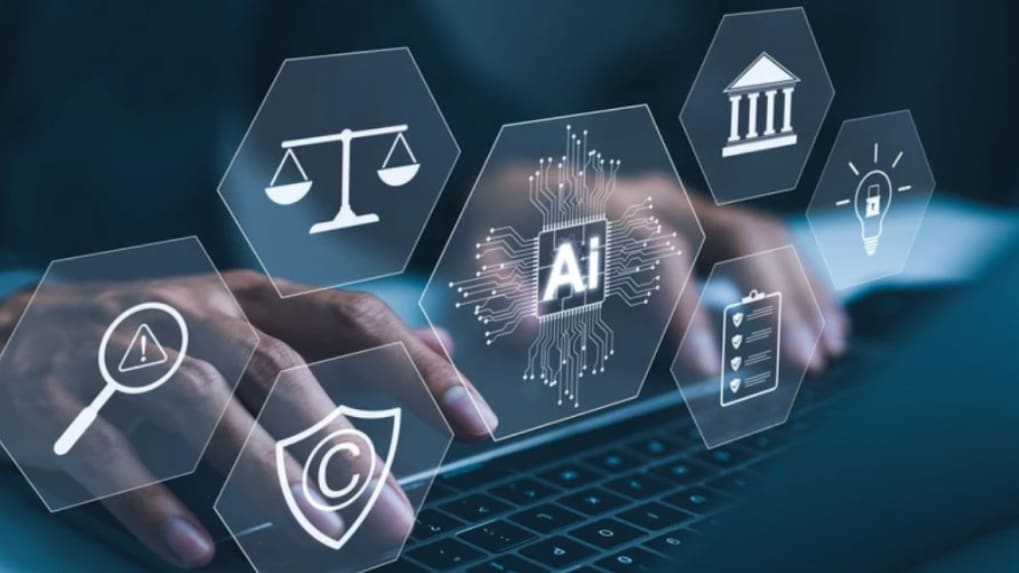How it Works
WPP, Havas, Omnicom: Are advertising’s biggest holdcos recasting agencies as AI Operating Systems?

Artificial intelligence is quietly transforming India’s cities, solving problems that have plagued urban life for decades. From stray cattle causing accidents to overflowing rubbish bins and gridlocked traffic, AI is stepping in to improve daily living. Importantly, it is not replacing people but assisting governments, schools, and transport networks to deliver services more efficiently.
Here’s how cities across India are putting AI to work:
1. Surat: Safer Roads with AI Watching Cattle
Surat has long struggled with stray cattle meandering across busy roads. Authorities have now connected AI-powered systems to CCTV cameras, which monitor traffic round the clock. These systems instantly detect animals wandering onto streets and send alerts to officials, who can respond quickly.
The outcome? Fewer accidents, lower risks for bikers, and smoother traffic flow. AI, in this case, acts as a vigilant eye that makes everyday travel safer for everyone.
2. Pune: Traffic Eases with Smarter Signals
In Pune, congestion and endless honking are part of daily life. But AI-driven traffic signals are beginning to change that. By analysing traffic flow, learning from movement patterns, and dynamically adjusting signal timings, AI systems have improved commuting conditions considerably.
Reports suggest traffic is moving 15–20% faster, while compliance with traffic laws has risen by 25%. Drivers are following rules more consistently, and residents are enjoying calmer, quicker journeys through the city.
3. Bengaluru: AI Keeps Buses Running On Time
Bengaluru, often dubbed India’s tech capital, is applying AI to public transport. Smart systems now predict demand for buses and adjust schedules in real time. This means buses arrive when they are most needed — neither too early nor too late.
The results are striking: ridership has risen by about 10%, and idle waiting time for buses has fallen by nearly 15%. For commuters, this translates into less time stranded at bus stops and more time reaching their destinations.
4. Indore: Cleanliness Boosted by AI Waste Management
Indore, celebrated for its cleanliness drives, is now taking its efforts further with AI. The city has deployed AI-powered waste management systems to optimise collection routes and resource allocation.
This has reduced operational costs by around 15%, enabling faster, more organised work without wasting resources. The result is not only cleaner streets but also a stronger case for Indore as one of the cleanest cities in India — a model for others to emulate.
5. Karnataka: AI Steps Into the Classroom
AI in India is not limited to roads and waste bins — it’s entering classrooms too. Karnataka schools are experimenting with tools such as Shiksha Copilot Plus, a generative AI assistant that helps teachers design lessons, recommend activities, and adapt content to suit student needs.
For teachers, it removes repetitive tasks and frees up time for one-on-one guidance. For students, it makes learning more interactive and engaging. The state aims to expand access to these tools in coming years, paving the way for a smarter, tech-savvy education system.
6. Telangana: Governance Gets Faster with AI and Meta
Telangana has partnered with Meta to introduce AI tools and WhatsApp-based chatbots for governance. Citizens can now receive quick responses, updates, and solutions directly on their phones, bypassing long bureaucratic processes.
This initiative has made public services faster, more transparent, and more accessible, saving both citizens and administrators valuable time. It represents a shift towards governance that is truly citizen-friendly.
7. Maharashtra: Preparing Cities and Citizens for the Future
Maharashtra is looking further ahead with the establishment of an AI Centre of Excellence in Robotics. The initiative focuses on training a skilled workforce equipped to harness AI across multiple sectors.
From controlling traffic lights to designing smarter school lessons, AI integration is being prioritised to improve efficiency in daily governance. By investing in human capital, Maharashtra is ensuring India’s cities are future-ready and technology-driven.
From Surat’s safer roads and Pune’s lighter traffic to Bengaluru’s punctual buses and Indore’s cleaner streets, AI is gradually improving quality of life across India’s urban centres. In classrooms, government offices, and training institutes, it is shaping a smarter future built on innovation, efficiency, and safety.
Compiled by Saara Dudeja
From purpose-driven work and narrative-rich brand films to AI-enabled ideas and creator-led collaborations, the awards reflect the full spectrum of modern creativity.
Read MorePraveen Someshwar, Managing Director and CEO of Diageo India, joins the Grand Jury of the Storyboard18 Awards for Creativity, highlighting the awards’ focus on work that blends cultural relevance with strategic and commercial impact.